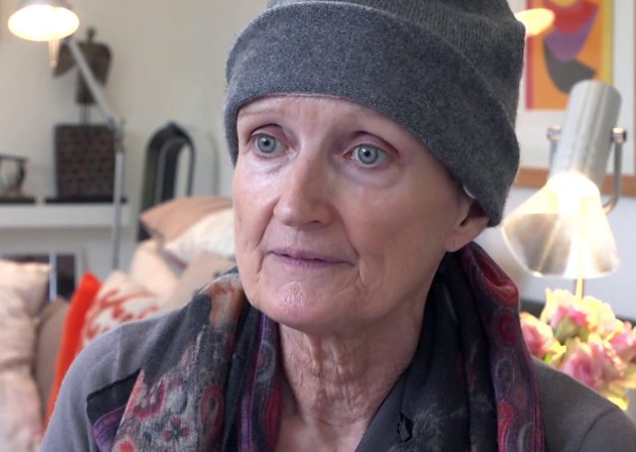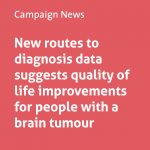 There has been some super coverage about brain cancer on Radio 4’s Today progamme this morning, inspired largely by Nick Robinson and Tessa Jowell’s own experiences and personal challenges with cancer. Both presenters have been incredibly candid, and brave, in recounting their experiences.
There has been some super coverage about brain cancer on Radio 4’s Today progamme this morning, inspired largely by Nick Robinson and Tessa Jowell’s own experiences and personal challenges with cancer. Both presenters have been incredibly candid, and brave, in recounting their experiences.
Susan Short, Professor of Clinical Oncology and Neuro-Oncology (Leeds), spoke about the need for combination therapies and treatments – so mixing things up with radiotherapy, chemotherapy and immunotherapy. Dr Colin Watts, Clinician Scientist & Hon Consultant Neurosurgeon (Cambridge), explored the impact that 5ALA has had on brain tumour surgery. And then there was discussion about adaptive trial design, so that everyone who is living with a brain tumour can be entered into a trial. And the need for good data and global data collection and people talking across continents. Finally the programme talked about patient experience. Four strong themes!
But as ever there is always a sense of impatience that things aren’t moving quickly enough. It’s always better to get it right than quick. And there truly is progress on all of these fronts – there is a stimulating environment out there. So for the next four days we’ll be sharing the view about each of these four themes.
Here in the first of a four part reflection on the programme, Helen Bulbeck, brainstrust’s Director of Services and Policy gives us some more detail on the context and her views on what was shared.
Part 1: adaptive trial design and research funding
We know today that big global research funders are looking for adaptive clinical trials, and that applications that meet the stringent criteria of larger funders are sadly lacking in the brain tumour community, and as a result, so are clinical trials for our patients. Every day we hear frustration from our community that there are not appropriate trials for them. Many fruitless hours are lost searching for brain tumour trials that don’t exist. And if a brain tumour trial is found, then people often fall outside of recruitment criteria because they have had treatment or are at recurrence. It is a hopeless situation and the frustration is felt across all involved – patients, carers, families, researchers, and doctors. To see the trials that might be available you can visit the brain tumour hub – www.braintumourhub.org.
The traditional model of trials hasn’t worked for people with a brain tumour. It’s time for something new.
brainstrust is working with investigators looking at adaptive trial design and ensuring that applications are top notch. Clinical trials are a bit like building towers – do you build one tower and put all your efforts into one building block. What happens if it falls down? Or do you build multiple, smaller towers, adding blocks as you go along, involving more people, mitigating risk and influencing more? This is the point we are at with trial design. The traditional model of trials hasn’t worked. It’s time for something new. Adaptive trial design shortens the time needed to answer key research questions, reduces the number of patients needed for evaluation, gives opportunity for more patients to be signed up for a trial, can answer more than one research question simultaneously and improves the quality of decision-making.
The barrier for funding research into brain tumours is the lack of quality.
There’s a lot of noise around lack of funding for research into brain cancer. On the one hand we hear that it’s the poor relation, in comparison to other cancers – true. We hear too that investigators and clinicians say that the barrier for funding research into brain tumours is the lack of quality, collaborative, innovative research applications. CRUK is funding two centres of excellence to a tune of £25 million and is holding an international conference in May to unite the brightest minds in cancer research to discuss and debate some of the greatest issues in the field. This, along with new approaches to designing clinical trials, are a step in the right direction. The outcome? An increase in overall success rates. For everyone.
- You can read more about how brainstrust helps shape clinical research here, through our work with the NCRI, the NIHR and other leaders in the field.
And for the bigger picture on brain tumour research and patient involvment, follow this link: https://www.brainstrust.org.uk/clinical-research.php









